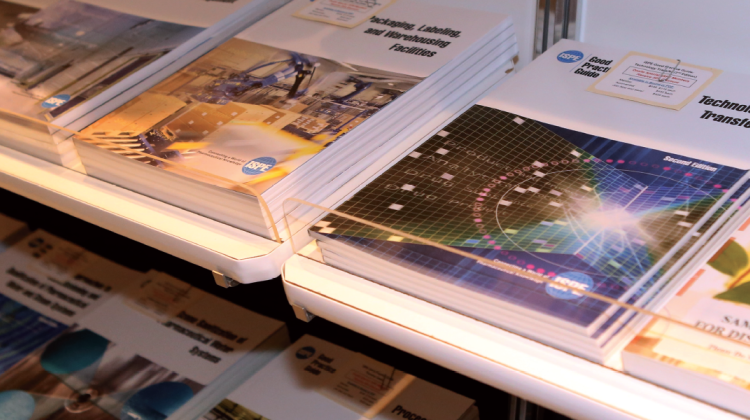The following blog post was provided by Peyton Myers, an undergraduate student at Appalachian State University. Myers attended the 2023 ISPE Annual Meeting & Expo in Las Vegas as an ISPE Foundation Professional Development Grant recipient.

The ISPE Good Practice Guide: Sampling for Pharmaceutical Water, Steam, and Process Gases has just been published and is a “first of its kind” document to address an issue that has been costing the pharmaceutical industry millions of dollars every year. Product quality is extremely important in the Life Sciences industry and sampling of critical utilities is part of this process. When any step of the sampling process isn’t done properly, errors may be introduced and misrepresentative data can create costly and unnecessary investigations and corrective actions. Sampling is an involved and complicated process and very little regulatory guidance exists on the topic. This Good Practice Guide provides expert guidance on all aspects of sampling including sample valve design, the number, location, and placement of sample valves, sampling technique, frequency, and sample storage including delivery to the laboratory for testing. The guide also addresses the purpose of sampling at a particular location—whether it is to meet regulatory requirements, to verify that a process is operating under a state of control, for diagnostic purposes, or for method validation.
The ISPE Good Practice Guide: Sampling for Pharmaceutical Water, Steam, and Process Gases will prove to be an indispensable tool to all users of water, steam, and process gases. If this guide eliminates even one costly investigation at your facility, it will pay for itself handsomely. By: Brian Hagopian, CPIP Team Leader, Sampling Guide Task Team Chemist, Clear Water Consulting, Inc. The ISPE Good Practice Guide: Sampling for Pharmaceutical Water, Steam, and Process Gases, is a direct result of the generous and dedicated commitment of the following subject matter experts, who gave their time, industry experience, and expertise in the Critical Utilities arena: Michael Baumstein, Pfizer, Inc., USA Rod Freeman, Beckman Coulter, Inc., USA Andre Gill, PE, Andre Gill Engineering, USA Michelle Gonzalez, PE, Amgen, Inc. (retired), USA Brian Hagopian, CPIP (Team Lead), Clear Water Consulting, Inc., USA Jeppe Kjems, CU Engineering, Denmark Joseph Manfredi (Chapter Lead), GMP Systems, Inc. USA Ruby Ochoa, Trace Analytics, LLC, USA Aravind Palinvelu, Roche, Singapore Brian Pochini, CPIP (Chapter Lead), Sanofi, USA Teri C. Soli, PhD, Soli Pharma Solutions, Inc., USA Philip Sumner, PE, Pfizer, Inc., USA Michael Tomaselli, Filters, Water, and Instrumentation, Inc., USA Nancy Tomoney, West-Ward Pharmaceuticals, USA Michael Vestermark, Novo Nordisk Biopharm, Denmark Peter Vishton (Chapter Lead), Independent Consultant, USA Anders Widov, Wiphe, AB, Sweden
The following blog post was provided by Peyton Myers, an undergraduate student at Appalachian State University. Myers attended the 2023 ISPE Annual Meeting & Expo in Las Vegas as an ISPE Foundation Professional Development Grant recipient.
The integration of data science in biopharmaceutical manufacturing, emphasizing data quality, tech transfer efficiency, and process optimization, is the heart of this track. Led by industry experts, discussions explore leveraging digital twins, predictive analytics, and continuous improvement initiatives. Additionally, interactive roundtable discussions provide attendees with a dynamic forum...
The pharmaceutical sector stands at a crossroads of immense possibilities. We are witnessing an unprecedented surge in innovation, fueled by a remarkable partnership between industry and regulatory authorities. For example, there are initiatives fostered by the US Food and Drug Administration (US FDA) to promote innovation with programs such as CATT (CBER Advanced Technologies Team) and ETP...